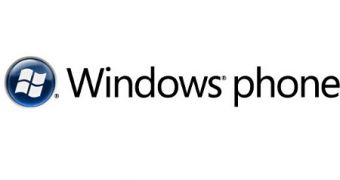The upcoming Windows Phone 7 operating system from Microsoft should come with a nice range of new features meant to enhance the experience of any end user out there, but it seems that business customers won't be left outside either. Microsoft's Windows Mobile OS has been one of the main platforms used by companies around the world, and Microsoft plans on following tradition. According to the Redmond-based giant, the upcoming mobile platform is meant to fulfill the needs of consumers with busy personal and business lives, with all the necessary features packed inside a single device.
“The vast majority of individuals make their own personal decision regarding which Smartphone to purchase. Given this, we often hear from IT professionals that their most important considerations for Smartphones are that they are phones people want and that they meet the organization’s IT needs– enabling them to increase usage and productivity. Organizations are interested in investments they have already made (e.g. Exchange, SharePoint, Office). Windows Phone 7 enables the IT support most organizations need without the need for additional infrastructure,” a recent article on Windows Phone Blog notes.
According to Microsoft, more than 90 percent of the users Windows Phone 7 is aimed at use their devices for business purposes, while 61 percent of them use the handsets for both business and personal entertainment. The upcoming OS includes tools like PowerPoint, OneNote, Word, Excel and SharePoint, as well as email, calendar and contacts to increase productivity, and support for other business applications too. The OS should prove a great option for businesses of all sizes, the company states, adding that the main focus was on enhancing the mobile experience, and not on trying to replicate the desktop experience.
Some of the main features of Windows Phone 7 that should interest businesses include Secure Development Lifecycle; deep integration of email, calendar and contacts with Exchange Server; SharePoint integration; device security via PINs and passwords; application sandboxing and managed code for data reliability; data transmission through 128 or 256 Bit SSL Encryption; Forefront Universal Access Gateway (UAG) for secure access to on-premise applications; or cloud / services integration; not to mention verification of apps via the Windows Phone Marketplace.
“Windows Phone 7 is a new platform that we will continue to improve and evolve. We needed to restart in order to build the right foundation for the future. We are delivering a great business phone that improves productivity by taking a fresh approach to the most common Smartphone business usage scenarios such as email, calendar, contacts and collaboration. At the same time, with support for Silverlight, XNA and the full suite of development and design tools from Visual Studio 2010 to Expressions, Windows Phone 7 provides a rich, efficient and familiar development platform that also meets the IT needs of many organizations with support for the most common EAS policies for management,” Microsoft stated.

 14 DAY TRIAL //
14 DAY TRIAL //